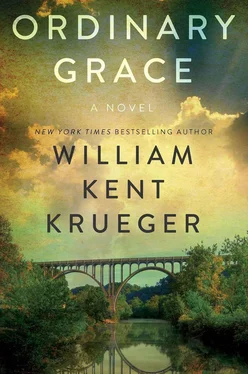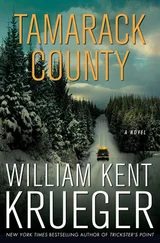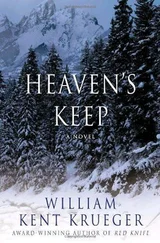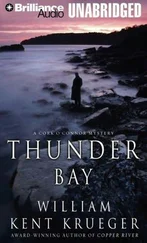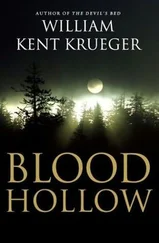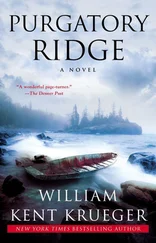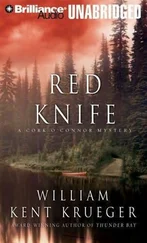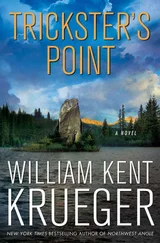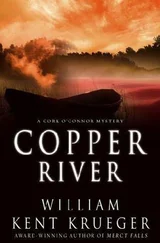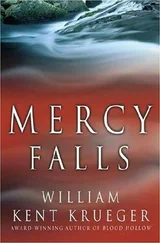William Krueger - Ordinary Grace
Здесь есть возможность читать онлайн «William Krueger - Ordinary Grace» весь текст электронной книги совершенно бесплатно (целиком полную версию без сокращений). В некоторых случаях можно слушать аудио, скачать через торрент в формате fb2 и присутствует краткое содержание. Жанр: Триллер, на английском языке. Описание произведения, (предисловие) а так же отзывы посетителей доступны на портале библиотеки ЛибКат.
- Название:Ordinary Grace
- Автор:
- Жанр:
- Год:неизвестен
- ISBN:нет данных
- Рейтинг книги:4 / 5. Голосов: 1
-
Избранное:Добавить в избранное
- Отзывы:
-
Ваша оценка:
- 80
- 1
- 2
- 3
- 4
- 5
Ordinary Grace: краткое содержание, описание и аннотация
Предлагаем к чтению аннотацию, описание, краткое содержание или предисловие (зависит от того, что написал сам автор книги «Ordinary Grace»). Если вы не нашли необходимую информацию о книге — напишите в комментариях, мы постараемся отыскать её.
Ordinary Grace — читать онлайн бесплатно полную книгу (весь текст) целиком
Ниже представлен текст книги, разбитый по страницам. Система сохранения места последней прочитанной страницы, позволяет с удобством читать онлайн бесплатно книгу «Ordinary Grace», без необходимости каждый раз заново искать на чём Вы остановились. Поставьте закладку, и сможете в любой момент перейти на страницу, на которой закончили чтение.
Интервал:
Закладка:
Danny’s mother answered the door. She looked at us with wonderment but not unkindly. Then she looked beyond us at the street and I understood that she was afraid.
“Is Danny home?” I asked.
She said, “Why are you here?”
“I was just wondering if Danny wanted to come out and play.”
“Danny’s gone to stay with relatives in Granite Falls for a few days,” she said.
I nodded and then said, “I’m sorry, Mrs. O’Keefe.”
“For what, Frank?”
“For your trouble.”
“And I’m sorry for yours.”
“Yeah. Well, good-bye, I guess.”
“Good-bye, Frank.” She looked at Jake and I thought she was going to say good-bye to him as well but she didn’t and I realized that she probably couldn’t remember his name which was a common result of Jake’s tendency toward silence in the company of others.
We stepped away from the front porch and Jake said, “What do we do now?”
“Let’s go down to the river,” I said.
In those days the Flats ended at the O’Keefes’ house. Beyond lay undeveloped marshland. We threaded our way through the tall cattails along a trail known to all the kids on the Flats and we emerged on the bank of the river. The two days of rain had swollen the flow and the water level and current were both far greater than they’d been in weeks. We began an aimless walk downstream toward our part of the Flats. The edge of the river was always changing, sometimes sand and sometimes mud, sometimes wide enough for a marching band and sometimes barely broad enough for the feet of two boys. The clearing on the stretch of reedy sand where Danny’s uncle had built his lean-to was almost completely surrounded by water now and because we’d often been warned about quicksand we stayed away from it. We walked past the place where if we wanted to return home most easily we would have climbed the bank but at the moment I wasn’t keen on returning to our house and to its atmosphere of dread. Not far beyond that Jake picked up a piece of driftwood as long as his arm and said, “Want to race boats?”
I found a big hunk of wood about the same size and said, “Go!” And we threw our make-believe boats into the river and the current snatched them away and we followed at a run. The boats swirled and turned and slid past submerged logs whose branches jutted above the river’s surface like the fingers of water beasts trying to haul them under.
“Mine’s winning,” Jake hollered and laughed for the first time in days.
We raced to the trestle where so much of that summer’s tragic history had already been played out. Where the water swirled around the pilings a little dam had formed of debris swept up by the powerful risen flow and our boats were caught among the branches and other detritus and the contest ended. We stood on the riverbank in the shade of the railroad bridge breathing fast and sweating profusely, with our sneakers covered in mud and our clothing snagged with burrs and our hearts lighter than they’d been since Ariel had vanished.
“Let’s sit down,” I said.
“Where?” Jake looked at the muddy riverbank.
“Up there.” I pointed toward the crossties above us.
Jake began to protest but I’d already started up the embankment and there was nothing for him to do but follow.
My shirt stuck to my sweaty back and I took it off and threw it over my shoulder and Jake did the same. The weeks we’d spent outside in the summer sun had turned our skins the color of pecans. I walked onto the trestle just far enough to sit where my legs could dangle. Jake looked down the tracks warily and listened carefully and finally sat beside me. I’d scooped up a handful of rocks from the roadbed and I began to throw them at the branches and other debris that rode the river. Jake saw what I was doing and grabbed a handful of rocks for himself.
We sat this way for several minutes in the nearly silent swelter of that July afternoon. The sky was a cloudless blue, the cornfields on the other side of the river deep jade, the distant hills a mottled green like turtle shells, and the water of the Minnesota River the color of cloudy cider. I was so used to the fertile smell of the valley that I barely noticed the raw fragrance drawn up from the wet black earth by the heat of the sun. What I did note was how, for a moment, things felt normal again. God, I wanted that moment to last forever. And with guilty clarity I realized that as much as I wanted Ariel to return to us I wanted even more for things simply to be as they’d been before.
Jake threw a rock and said, “Every time I think about Ariel it feels like somebody punched me in the gut. Do you think she’ll ever come home, Frank?”
“I don’t know.”
“I thought so at first but I don’t think so now.”
“Why?”
“I just have that feeling.”
“Well get rid of it,” I said and threw a rock.
“I’ve been dreaming about her.”
“Yeah?”
“I dream about her in heaven.”
I’d been ready to throw another rock, even had my arm cocked, but I stopped and looked at my brother. “What’s it like?”
“Mostly she’s just happy. I feel kind of good when I wake up.”
“Jesus, I wish I had that dream.”
“You said-” Jake began his usual complaint about my language but dropped it. He looked past me and looked down and said, “What’s that, Frank?”
I turned my eyes to where he pointed at the little dam of debris the river had swept up and the trestle pilings had captured. Within the thick nesting of brush and branches which were all shades of brown and black was an undulation of bright red that couldn’t be seen from the riverbank but was quite visible from above. I stood and crept farther out onto the trestle where Jake was reluctant to follow and I reached the place directly above the debris. I peered down among the debris and branches where the brown cider water rushed through and obscured everything beneath the surface. It took me a moment to realize what I was looking at. And when I did the breath went out of me.
“What is it, Frank?”
I couldn’t look up. I couldn’t look away. I couldn’t speak.
Jake said, “Frank?”
“Get Dad,” I finally managed to say.
“What is it?” Jake insisted.
“Just get Dad. Now, Jake. Go. I’ll wait here.”
Jake stood up and started out farther onto the trestle and I yelled at him, “Don’t you come out here. Don’t take another step. Just get Dad, goddamn it.”
Jake stumbled back and almost fell from the trestle and picked himself up and turned and began to run along the tracks toward the Flats.
Strength deserted every muscle of my body and I collapsed and stared down between the crossties at the rippling swatch of red which I’d realized was the fabric of a dress ruffling in the current. And beside it from the obscured depth of the river a little stream of a deeper color roiled up and fluttered along the surface and I knew this was Ariel’s long auburn hair.
The day was hot and windless and the sky a hard china blue and I lay alone on the railroad bridge and cried my heart out above a river that seemed to have none.
23
Knowing was far worse than not knowing.
Not knowing had offered hope. Hope that there was some possibility we’d overlooked. That a miracle might yet occur. That one day the telephone would ring and there would be Ariel’s voice on the other end like a bird singing at sunrise.
Knowing offered only death. The death of Ariel and of hope and of something that I didn’t see at first but whose loss would reveal itself to me more and more as time went on.
New Bremen was in Sioux County and like many basically rural counties had an elected coroner whose duty it was to certify cause of death. The coroner for our county was van der Waal, the mortician. This wasn’t a piece of information most kids my age would typically have known but because my father’s occupation often drew him to the deathbed I’d heard him on many occasions recount to my mother van der Waal’s pronouncements. In that summer with Bobby Cole and the itinerant already in the ground van der Waal was even more darkly familiar to me.
Читать дальшеИнтервал:
Закладка:
Похожие книги на «Ordinary Grace»
Представляем Вашему вниманию похожие книги на «Ordinary Grace» списком для выбора. Мы отобрали схожую по названию и смыслу литературу в надежде предоставить читателям больше вариантов отыскать новые, интересные, ещё непрочитанные произведения.
Обсуждение, отзывы о книге «Ordinary Grace» и просто собственные мнения читателей. Оставьте ваши комментарии, напишите, что Вы думаете о произведении, его смысле или главных героях. Укажите что конкретно понравилось, а что нет, и почему Вы так считаете.
